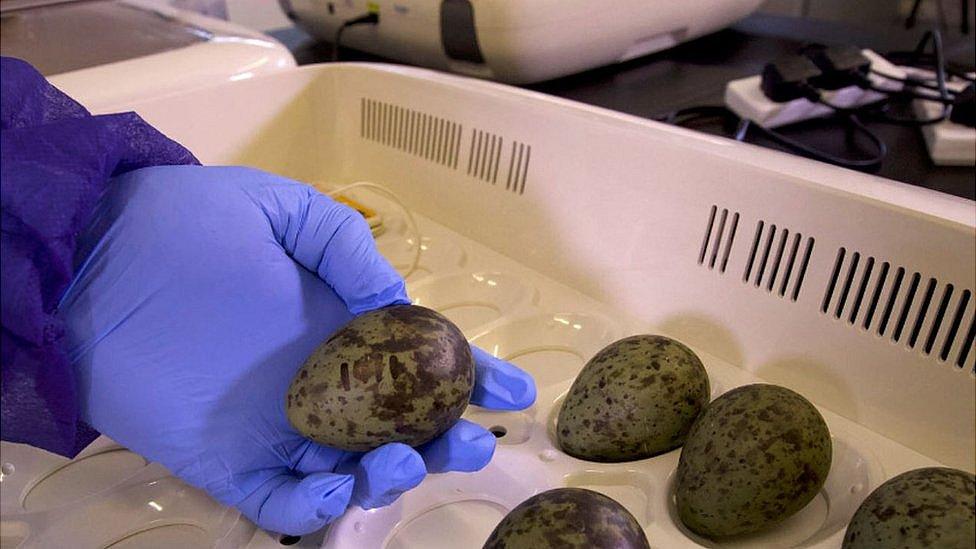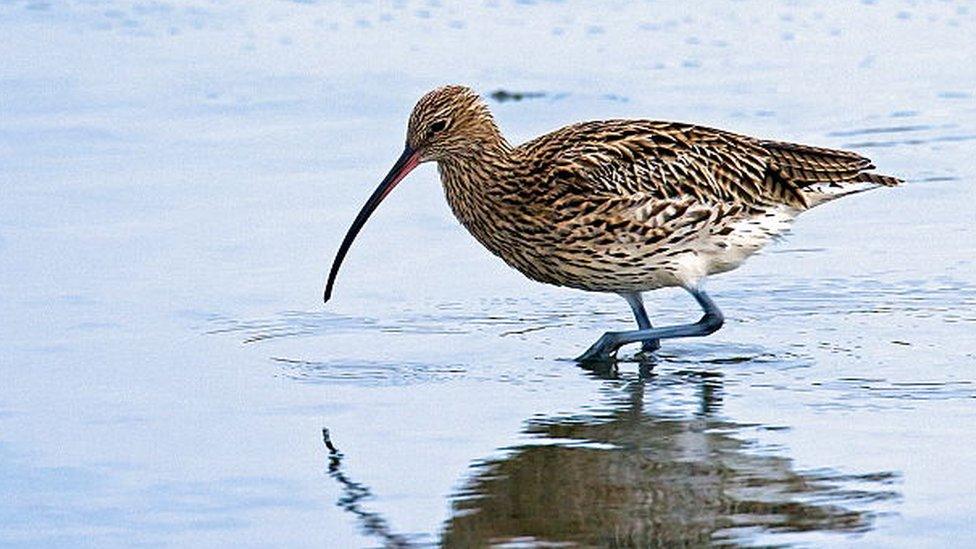Endangered curlew eggs rescued from RAF airfields
- Published

The birds will be hatched in incubators at WWT Slimbridge
Eggs from endangered birds' nests near RAF air bases that would normally be destroyed have been saved in a pilot conservation project.
The curlew eggs, rescued from six MoD airfields in East Anglia, were sent to WWT Slimbridge in Gloucestershire.
Eggs from nests near military runways are normally destroyed under licence to deter flocking birds and reduce the risk of bird-strikes.
The birds will be hand-reared and released into the Severn Vale.
Nigel Jarrett, head of conservation breeding at WWT, said it was an "exciting opportunity".
"On one hand, curlews at East Anglian air bases pose a potential risk to aviation, but on the other hand they have the potential to help their struggling cousins in the South West," he said.
"By babysitting these chicks until they can fly, we can help encourage a new generation of British curlews in the lowlands."

Curlew numbers in the UK have declined by 60 per cent over the past 30 years
The curlew is the UK's largest wading bird, and numbers have declined by 60 per cent over the past 30 years, with only hundreds of pairs remaining in southern England, Wales and Ireland.
An MoD spokesman said: "Fast-jet airfields are carefully managed to deter large and flocking birds and reduce the risk of bird-strike, but curlews seem very keen to nest on them in East Anglia, probably due to perceived safety from predators and lack of other suitable habitats in the landscape."
Natural England chairman Tony Juniper said: "Releasing captive-reared curlews to areas where they have disappeared, while at the same time helping to ensure airfield safety, is an example of the kind of positive partnership that we know is needed if we are to reverse the declining fortunes of many of our wildlife species."
The birds will be hatched in incubators at Slimbridge, and live in outdoor aviaries until they are old enough to fly and be released at specially-selected sites.